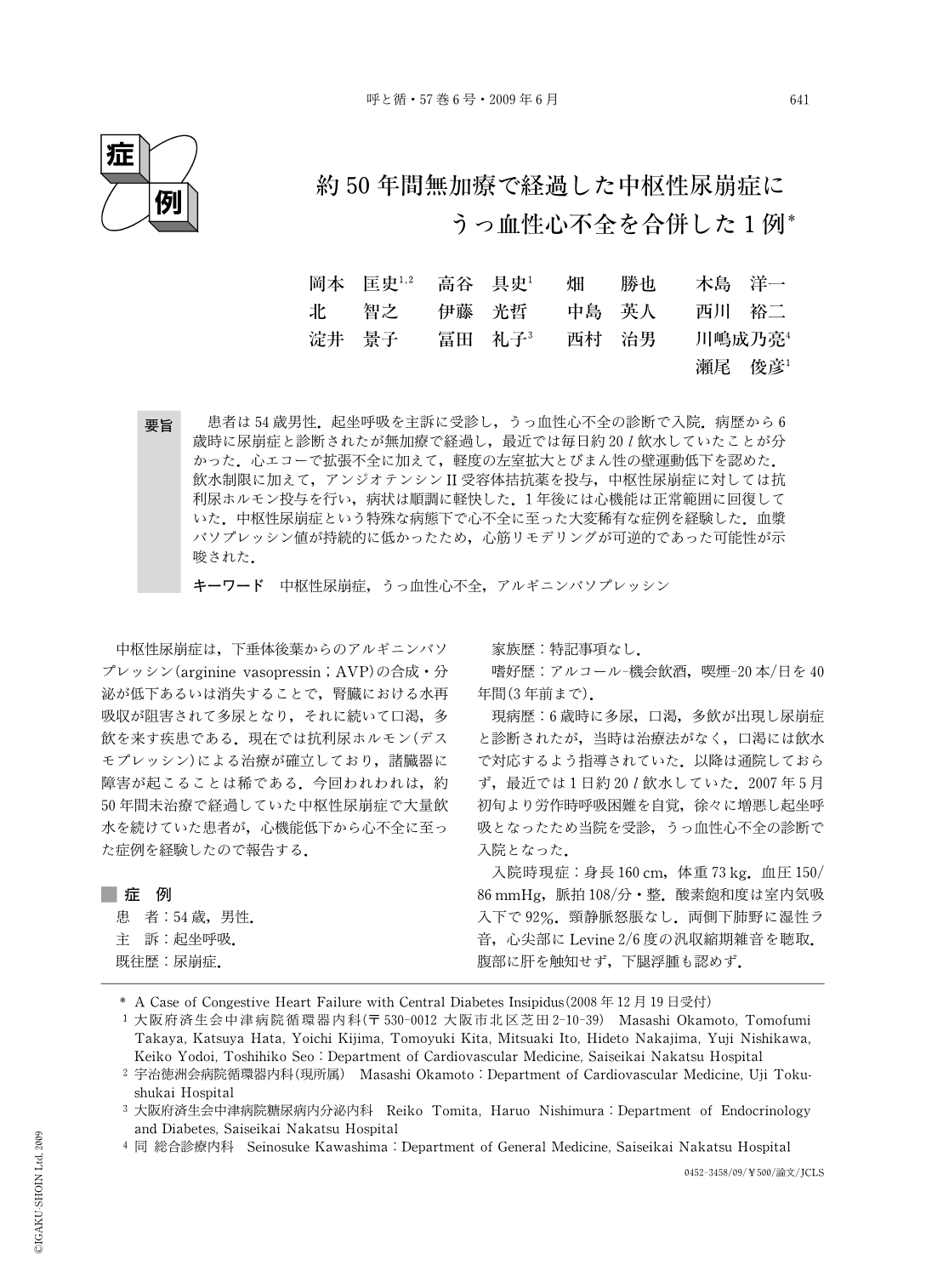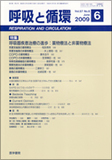Japanese
English
- 有料閲覧
- Abstract 文献概要
- 1ページ目 Look Inside
- 参考文献 Reference
要旨 患者は54歳男性.起坐呼吸を主訴に受診し,うっ血性心不全の診断で入院.病歴から6歳時に尿崩症と診断されたが無加療で経過し,最近では毎日約20l飲水していたことが分かった.心エコーで拡張不全に加えて,軽度の左室拡大とびまん性の壁運動低下を認めた.飲水制限に加えて,アンジオテンシンII受容体拮抗薬を投与,中枢性尿崩症に対しては抗利尿ホルモン投与を行い,病状は順調に軽快した.1年後には心機能は正常範囲に回復していた.中枢性尿崩症という特殊な病態下で心不全に至った大変稀有な症例を経験した.血漿バソプレッシン値が持続的に低かったため,心筋リモデリングが可逆的であった可能性が示唆された.
A-54-year-old man was admitted to our hospital because of orthopnea and diagnosed with congestive heart failure. Though diabetes insipidus was diagnosed when he was 6 years old, he had not received any appropriate therapy. He continuously felt thirsty and drank about 20 liters of water per day before admission. Transthoracic echocardiography revealed diastolic dysfunction, mild dilatation in his left heart, and diffuse hypokinesis of left ventricular wall motion. After admission, we restricted his fluid intake and administered angiotensin type II receptor blocker. Heart failure was gradually lessened, and then we diagnosed him as having central diabetes insipidus and treated him with antidiuretic hormone. One year later, his cardiac function had returned to normal. We had thus encountered a rare case of congestive heart failure with central diabetes insipidus. This case suggested that the continuous suppression of plasma vasopressin level might prevent irreversible progression of cardiac remodeling.

Copyright © 2009, Igaku-Shoin Ltd. All rights reserved.


